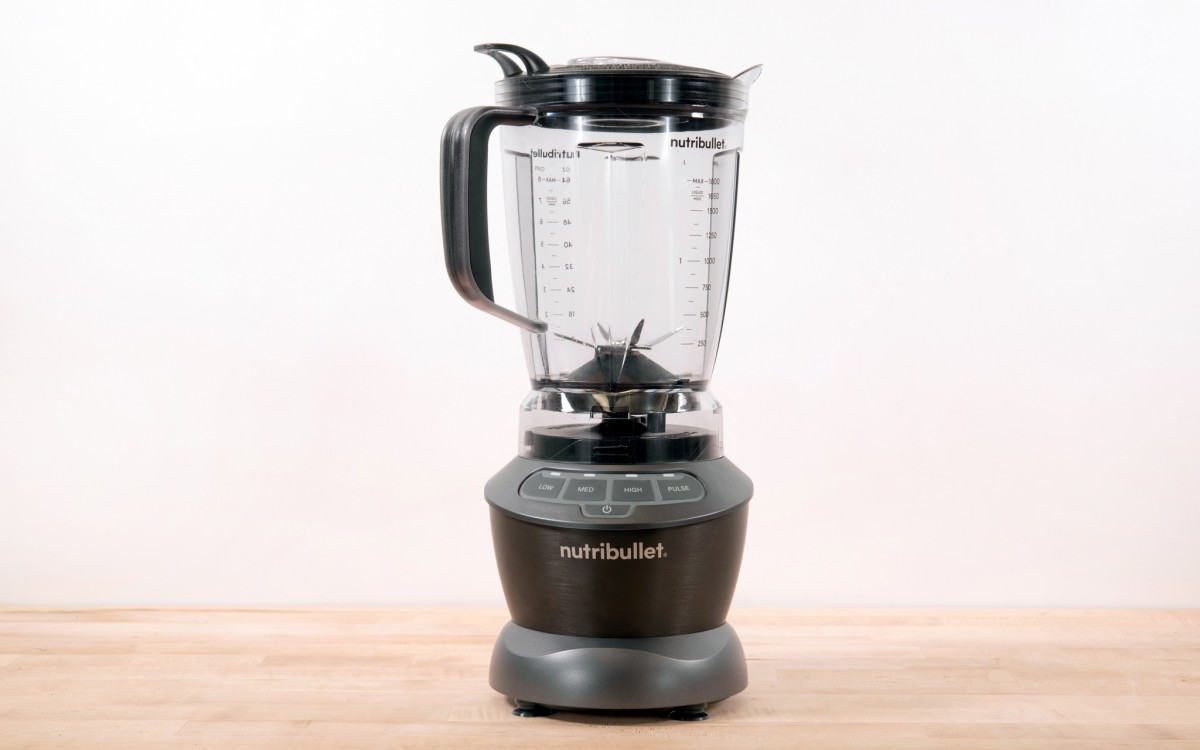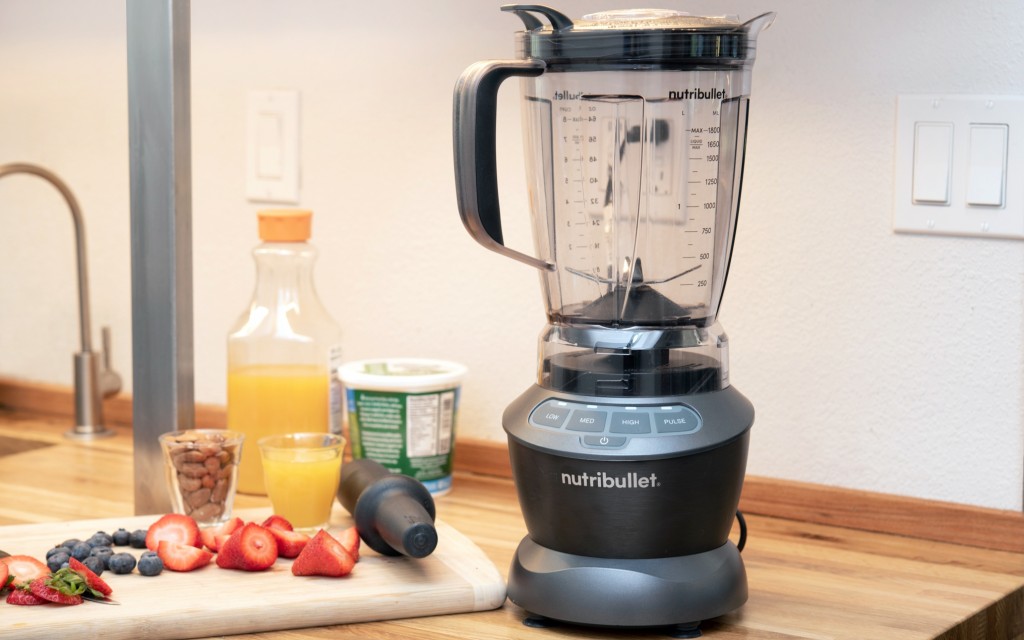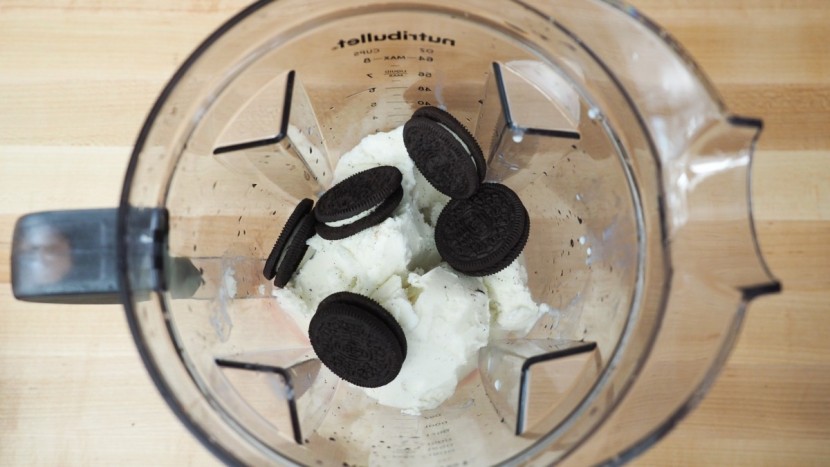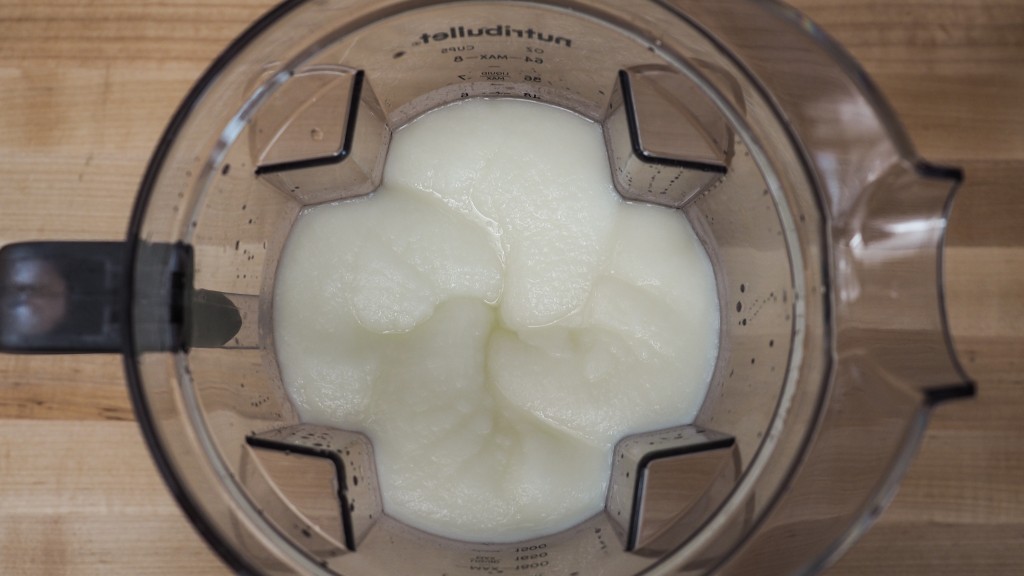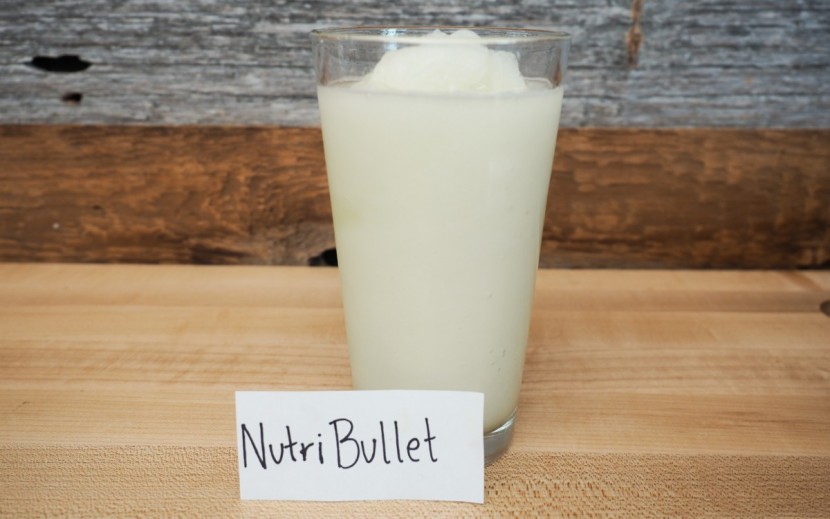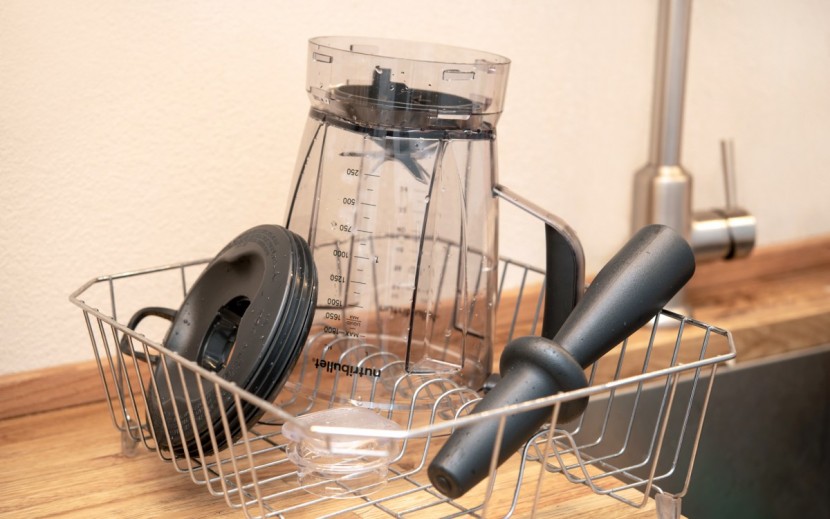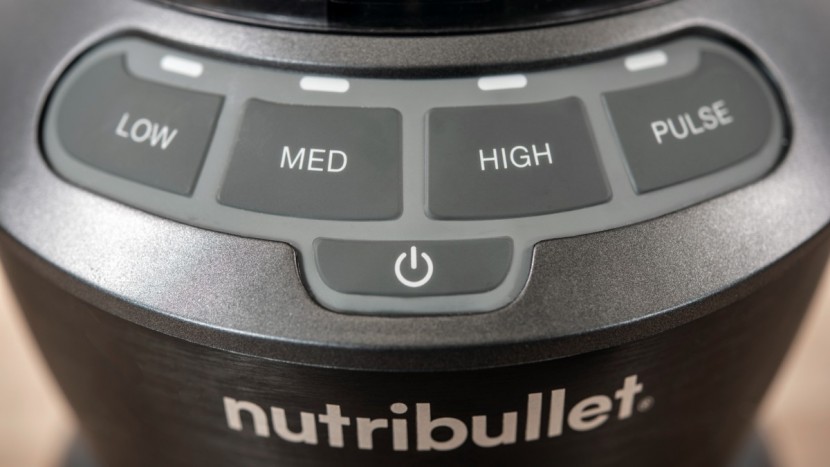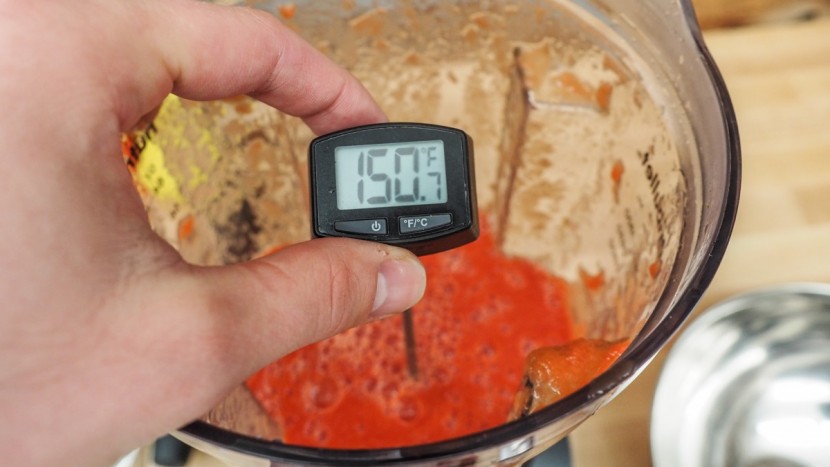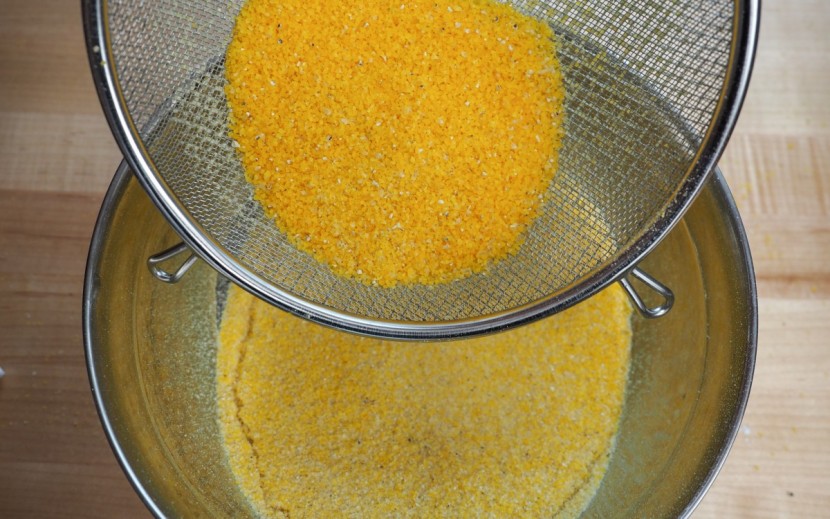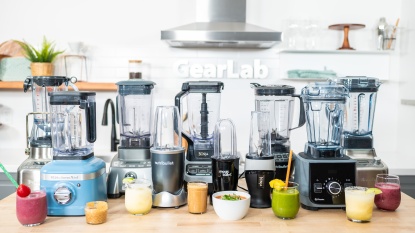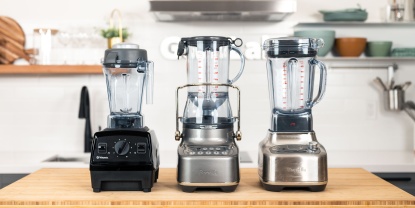
Our Verdict
Our Analysis and Test Results
The NutriBullet pitcher is slightly smaller than others in our test suite but still offers a 64-ounce blending capacity. The main features that this model lacks compared to some blenders are preset blending functions and a digital timer. This means you have to manually control the speed and duration when blending, but we don't find this to be an issue. Additionally, you can also get a combo pack that includes some personal smoothie cups if you want an easier way to take your smoothies on the go. Read on to see how this budget-friendly option holds up to our testing.
Smoothies
The NutriBullet performs well above average on all four of our individual smoothie tests, but our judges rate it just behind the top models in terms of taste and texture.
We run the NutriBullet on high power for 70 seconds for our green smoothie test, which produces a very good, albeit foamy, drink. It is one of the best green smoothies in our testing.
It can be difficult to blend leafy greens in with frozen fruit, but the NurtiBullet does a great job. Our green smoothie tastes amazing, and this blender obliterates almost all of the frozen fruit, spinach, and kale aside from one small chunk.
This blender performs just a little bit worse in our berry smoothie test. The beverage is well blended, but it struggles with the berry seeds. After 60 seconds of blending, most of the berry seeds remain intact, giving the berry smoothie a grainy texture. If you don't mind the seeds, then this is a non-issue, but we recommend cutting your berry smoothies with banana, mango, or some other less seedy fruit.
The NutriBullet struggles a bit more with the fruit and oat smoothie — as expected — but still produces an overall good showing. It leaves quite a bit of unblended food on the sides of the pitcher, and the resulting mixture is somewhat granular. However, our judges unanimously agree that the smoothie is still perfectly palatable.
The NutriBullet finishes out this metric with a solid showing when it comes to making a malt. It tastes great, with every judge emptying their glass, but the texture is a bit grainier than the malts made by the premium blenders. It also takes a little effort with the tamper to get the mixture blending.
Ice
This blender doesn't struggle when it comes to crushing ice cubes, obliterating them in about 10 seconds. The ice is crushed fairly uniform and doesn't leave any large chunks that escape the blades.
The margarita is also of uniform slushiness and has the correct texture for a blended cocktail.
The motor struggles a bit while blending harder material like ice, which is made obvious through a slight change in pitch and a burning smell. The blended ice drinks still come out flawless, but a burning motor may indicate a shorter lifespan for this budget option.
Convenience
The NutriBullet isn't the easiest blender to use that we've tested, but it still performs admirably.
The NutriBullet pitcher, lid, and blade are dishwasher safe and fairly easy to clean by hand. The pitcher has a nice wide mouth, but it can take some work to clean under the blades. We missed bits of food trapped there multiple times throughout testing, so you will want to pay close attention when cleaning to ensure no trapped food starts molding or rotting.
The lid is very easy to clean and remove from the pitcher, but it must be placed on a drying rack as there is no way to place it on the base to allow adequate airflow underneath to dry it out.
The labels on this blender are easy to read, as it has very simple controls: low, medium, high, and pulse. As previously mentioned, this blender lacks any automatic presets, which keeps things simple but makes the machine a little less versatile.
Pureeing
This blender does a great job of churning up almond and peanut butter, creating a smooth and creamy spread in about eight minutes. The motor doesn't seem to struggle too much, but we had to add about half a tablespoon of oil to get the mixture going.
The NutriBullet also whips up a great tomato soup. After running the blender on high for six minutes, the resulting puree is extremely fine and very uniform, pouring through a mesh sieve like water. Even better, the NutriBullet heats the soup to a proper serving temperature while blending. Our tomato soup reached a temperature of 152.1°F in six minutes. It releases a surprising amount of steam when removing the lid, so be careful not to burn yourself.
Grinding
After 60 seconds of blending, the NutriBullet reduces the vast majority of the granulated sugar to a powder. However, the result isn't quite as light and fluffy as some of the top appliances. Additionally, our sieve caught a decent amount of larger granules that escaped the blades. It does about the same with the Parmesan cheese, struggling a bit at the start but easily reducing the bulk of the cheese to fine particles. Some larger chunks remain, but we doubt you would even notice them if served on a pasta dish or similar.
Unfortunately, the performance drops a bit when milling corn kernels. Only about 75% of the finished product makes it through the sieve after 60 seconds of milling, with the remaining pieces being much larger and less evenly ground.
Should You Buy the NutriBullet Blender?
We would highly recommend the NutriBullet to anyone who is shopping for a new blender on a limited budget and yet doesn't want to make any huge concessions regarding performance. The lack of presets and a timer detracts a bit from user-friendliness, but it costs so much less than the top-tier models that we think the NutriBullet is well worth the added effort.
What Other Blenders Should You Consider?
If you do a lot of blending or value top-performance, you might want to consider a blender that offers more over the long term. Based on our extensive testing, to get better performance than the NutriBullet, there is a significant step up in price. We'd recommend you look at the Cuisinart Hurricane Pro and the Vitamix A2500 Ascent Series, both of which are top-performing blenders that would make an excellent long-term investment.


